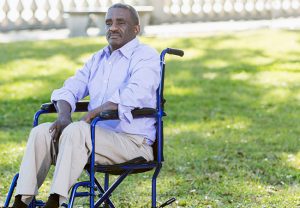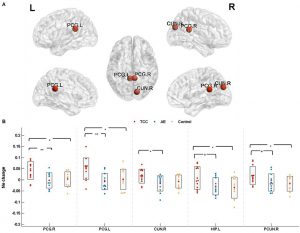Mindfulness is Associated with Reduced Depression and Fatigue in Patients with Multiple Sclerosis
By John M. de Castro, Ph.D.
“Mindfulness can help people with MS learn to distinguish between actual physical discomfort and the stories they tell themselves about the pain (like “I’ll never feel better). Mindfulness can also help improve the anxiety and depression people with the disease may experience.” – Meryl Davids Landau
Multiple Sclerosis (MS) is a progressive demyelinating disease which attacks the coating on the neural axons which send messages throughout the body and nervous system. It affects about 2 million people worldwide and about 400,000 in the U.S. It is most commonly diagnosed in people between the ages of 20 and 50 years.
Unfortunately, there is no cure for multiple sclerosis. There are a number of approved medications that are used to treat MS but are designed to lessen frequency of relapses and slow the progression of the disease, but they don’t address individual symptoms. But MS is not fatal with MS patients having about the same life expectancy as the general population. Hence, most MS sufferers have to live with the disease for many years. Mindfulness practices have been shown to improve the symptoms of multiple sclerosis.
In today’s Research News article “Trait mindfulness is primarily associated with depression and not with fatigue in multiple sclerosis (MS): implications for mindfulness-based interventions.” (See summary below or view the full text of the study at: https://www.ncbi.nlm.nih.gov/pmc/articles/PMC7962308/ ) Sauder and colleagues recruited adult patients diagnosed with multiple sclerosis and had them complete measures of depression, fatigue, and mindfulness.
They found that the higher the reported levels of mindfulness, the lower the levels of depression, physical fatigue, and cognitive fatigue. A mediation analysis indicated that depression entirely mediated the relationship between mindfulness and fatigue such that mindfulness was associated with depression and depression was in turn associated with both cognitive and physical fatigue. So, the entire relationship between mindfulness and fatigue resulted from the relationship of mindfulness with depression.
These results are correlational and as such causation cannot be determined. Previous research, however, has demonstrated that mindfulness reduces depression and fatigue. So, the current relationships are likely due to causal relationships. Hence, mindful patients with multiple sclerosis are less depressed and this makes them less fatigued. The reason that these patients experience fatigue appears to be due to their depression and mindfulness reduces this depression. This suggests that mindfulness training may be useful in improving the psychological well-being of patients with multiple sclerosis.
So, mindfulness is associated with reduced depression and fatigue in patients with Multiple Sclerosis.
“One of the reasons that mindfulness training is so promising is because it is an easily accessible treatment for all patients. Anyone can use mindfulness — even individuals with limited mobility, who often find other training techniques, like exercise training, to be more challenging,” – Science Daily
CMCS – Center for Mindfulness and Contemplative Studies
This and other Contemplative Studies posts are also available on Google+ https://plus.google.com/106784388191201299496/posts and on Twitter @MindfulResearch
Study Summary
Sauder, T., Keune, P. M., Müller, R., Schenk, T., Oschmann, P., & Hansen, S. (2021). Trait mindfulness is primarily associated with depression and not with fatigue in multiple sclerosis (MS): implications for mindfulness-based interventions. BMC neurology, 21(1), 115. https://doi.org/10.1186/s12883-021-02120-z
Abstract
Objectives
Persons with MS (PwMS) often display symptoms of depression and fatigue. Mindfulness-based interventions are known to counteract these symptoms. However, to-date the exact relations between trait mindfulness, depression and fatigue remain to be examined. Fatigue is generally regarded as a symptom immanent to the disease and as a direct neurobiological consequence of increased cytokine levels and cortical atrophy. In depression on the other hand, psychosocial factors in the context of adaptation difficulties are probably of higher relevance. Hence, one may argue that mindfulness, as a trait that promotes successful adaption, may show a strong negative association with depression and a relatively minor negative association with fatigue in PwMS.
Methods
In the current study, the association between self-reported trait mindfulness, fatigue and depression was examined in a sample of 69 PwMS.
Results
Trait mindfulness showed highly significant negative correlations with both, depression and fatigue. Mediation analyses however, revealed that depression mediated the relation between mindfulness and fatigue.
Conclusion
It may be concluded that in PwMS, trait mindfulness shows a genuine negative association with depression, but that it is only secondarily associated with fatigue. Implications for mindfulness-based interventions in MS are discussed. Based on the results of the current study, it may be feasible to promote the acceptance of default fatigue symptoms, instead of an actual reduction of fatigue symptoms.
https://www.ncbi.nlm.nih.gov/pmc/articles/PMC7962308/









